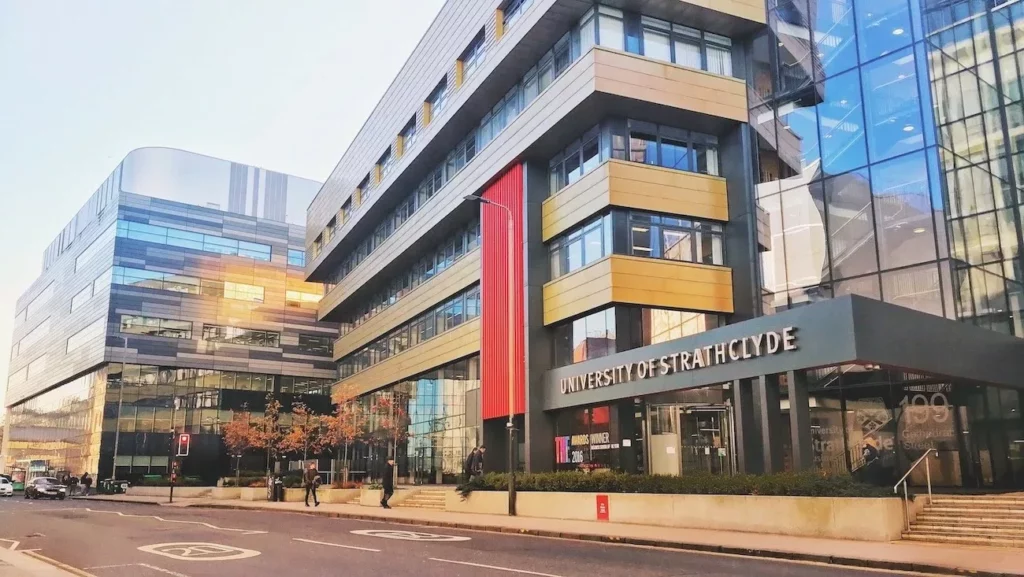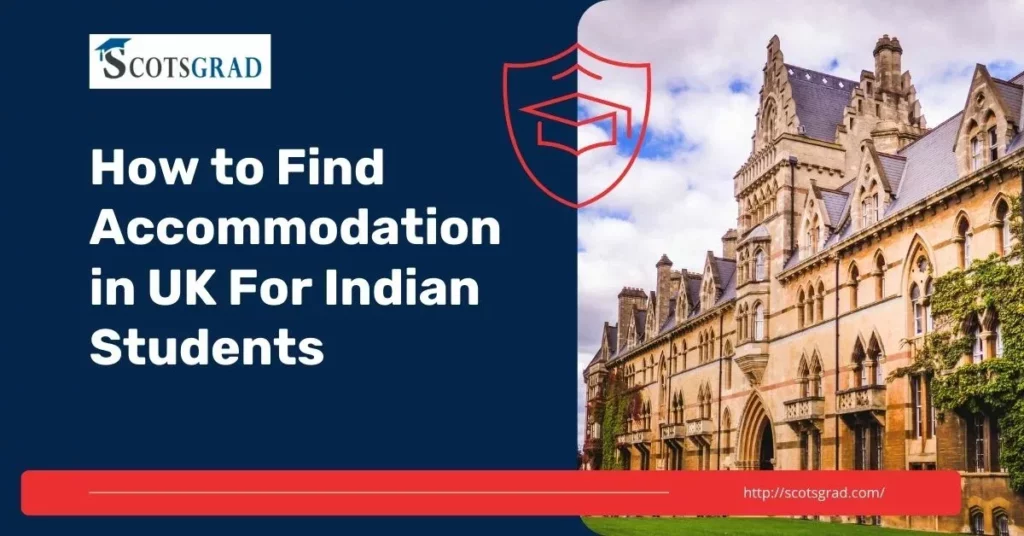Many Indian students dream of studying abroad, and the UK is a popular choice. British universities are well-known for their high-quality education, especially in business. Studying there can give Indian students an edge in the global job market. This article looks at some of the best universities in the UK for Indian students who want to pursue an MBA.
Pursuing MBA in the UK
The United Kingdom has long been a sought-after destination for higher education, with its richness in tradition, quality, and diversity of study opportunities. For business education, in particular, the UK boasts some of the most prestigious MBA programs globally, drawing students from every corner of the world. Indian students, with their strong academic backgrounds and motivation to excel professionally, are increasingly gravitating toward UK colleges for their Masters of Business Administration (MBA) aspirations.
Why do Indian students opt for an MBA in the UK?
Indian students have several compelling reasons to choose the UK as their MBA destination. With an array of top-ranking business schools such as the London Business School, Oxford’s Said Business School, and Cambridge’s Judge Business School, the quality of education is indisputable. The curriculum in UK MBA programs is known for its global orientation, comprehensive case studies, and an emphasis on building a robust international business perspective. These factors align well with the career goals of many Indian students who seek leadership roles in multinational corporations or are eager to launch their own entrepreneurial ventures with a global outlook.
The UK’s educational system also offers one-year MBA programs that are intensive and time-efficient compared to the traditional two-year programs often found elsewhere, including the US. This shorter duration is attractive to Indian students looking to minimize opportunity costs and return to the professional world with a minimal gap.
Another draw is the potential for post-study work opportunities. The UK government’s reintroduction of the two-year post-study work visa under the Graduate Immigration Route has strengthened the value proposition for Indian students, who may aspire to gain international work experience and recoup some of the investment made in their education.
Moreover, the cultural diversity within the UK and its business schools mirrors the inclusive, multicultural environments of global business landscapes. Indian students benefit from the insights gained through interactions with peers from various nationalities, cultures, and professional backgrounds, enriching their learning and networking experience.
To ensure ease in the transition for Indian students, UK colleges often provide dedicated support services. From assistance with visa applications and understanding the local culture to career guidance and alumni networks, the resources available can significantly ease the adjustment process for international students.
When accounting for these clear advantages and the esteemed reputation of UK MBA qualifications, it’s no surprise that Indian students are increasingly making the UK their destination of choice for business education. Pursuing an MBA in the UK reflects a strategic step toward building a strong foundation for a global career as well as achieving accelerated personal and professional growth.
Factors to Consider When Choosing an MBA College in the UK
When Indian students decide to pursue an MBA in the UK, several critical factors come into play that can influence their educational experience and career trajectory. It is crucial for students to consider not just the brand name of an institution, but a variety of elements that contribute to their overall growth and alignment with their career objectives. Here are some key considerations for selecting an MBA college.
Accreditation and Rankings
The quality and credibility of an MBA program are often indicated by its accreditation and rankings. Accredited programs have met certain standards of excellence, which can assure students of a comprehensive and respected business education. Look for accreditation from bodies such as the Association of MBAs (AMBA), the Advanced Collegiate Schools of Business (AACSB), or the European Quality Improvement System (EQUIS).
Rankings can also be a useful tool when comparing MBA colleges, although they should not be the sole determinant. Consider the methodology behind rankings and what aspects of the program are being evaluated, such as faculty quality, research output, graduate employability, and student satisfaction.
Course Specializations
While a general MBA provides a broad understanding of business, many students benefit from specializing in a specific area that aligns with their career goals. UK business schools often offer a range of specializations such as finance, marketing, entrepreneurship, operations management, or international business. Evaluate the strengths of a college’s specific offerings and consider how they match your interests and aspirations. This can help you to cultivate a niche expertise that may be valuable in the job market.
Location and Living Expenses
The location of your chosen MBA college will have a significant impact on your daily life and finances. Urban campuses like those in London might offer greater networking opportunities and proximity to leading corporations but come with a higher cost of living. On the other hand, campuses in smaller cities or towns may provide a lower cost of living and a close-knit community experience.
Consider the following when assessing living expenses:
- Accommodation costs (on-campus or nearby housing)
- Food and groceries
- Transportation (public transport and its accessibility)
- Health insurance and medical fees
- Miscellaneous expenses such as books, materials, and personal spending
Creating a budget that includes these expenses will help you estimate the total cost of your MBA journey in the UK. Research the availability of financial aid, scholarships, or bursaries that colleges may offer to international students to help offset costs.
By giving thorough thought to these factors – accreditation and rankings, course specializations, and the impact of location and living expenses – Indian students can make an informed decision and select an MBA college in the UK best suited to their professional development and personal needs.
Top MBA Colleges in the UK for Indian Students
The United Kingdom is a renowned educational hub offering a plethora of opportunities for Indian students aiming to pursue an MBA. Known for their rigorous academic standards and diverse student bodies, UK business schools pave the way for brilliant career prospects globally. Among the top-tier institutions, Indian students often gravitate towards the University of Oxford’s Saïd Business School, which boasts a rich tradition of academic excellence. The University of Cambridge’s Judge Business School is another elite destination, offering a blend of innovative teaching and influential networks.
London Business School, with its prime location and outstanding global reputation, provides students with unmatched exposure to the corporate world. The Imperial College Business School in London is well-known for its strong focus on entrepreneurship and technology management.
For Indian students, not only do these colleges offer an international degree, but they also provide a multicultural environment that enriches the learning experience. Here’s a brief rundown of the options:
| Business School | Notable Strengths |
| Saïd Business School | Tradition, Global Outreach |
| Judge Business School | Innovation, Entrepreneurial Environment |
| London Business School | Global Networking, Strategic Location |
| Imperial College Business | Tech Management, Entrepreneurship |
All these institutions also come with dedicated career services that specifically cater to the aspirations of Indian students, helping bridge the gap between East and West in the corporate world.
Admission Requirements and Application Process
To pursue an MBA in the UK, Indian students must navigate through a series of admission requirements and the application process. Initially, aspirants should possess an undergraduate degree from a recognized institution; most UK colleges prefer a first or second-class degree. Moreover, a valid GMAT score is often required, with the average accepted score hovering around 600, though this can vary by institution.
Work experience enriches an application, with many MBA programs expecting two to five years of professional engagement. Proficiency in English is compulsory, and students must prove this through exams like IELTS or TOEFL, with most colleges requiring an IELTS score of 6.5 or higher.
The application process involves submitting a completed application form, academic transcripts, GMAT scores, English language proficiency test scores, references, and a personal statement. Additionally, some colleges may request a detailed CV and an interview as part of the selection process.
Indian students should also be mindful of application deadlines, which typically fall between October to January for most institutions, although some may offer rolling admissions.
MBA Application Requirements for Indian Students
| Requirement | Description |
| Undergraduate Degree | Recognized institution, preferably first or second-class |
| GMAT Score | ~600 (varies) |
| Work Experience | 2-5 years |
| English Proficiency | IELTS (6.5+) or equivalent |
| Documents | Transcripts, References, Personal Statement, CV |
| Deadlines | Generally Oct-Jan |
It’s advisable to begin preparations well in advance to ensure a smooth application process.
Scholarships and Financial Aid Opportunities
For Indian students aiming to pursue an MBA in the UK, financing your education is a critical aspect to consider. Fortunately, there are numerous scholarships and financial aid opportunities available to ease this financial burden. Institutions such as the University of Oxford and the University of Cambridge offer scholarships specifically for Indian nationals, like the Oxford and Cambridge Society of India (OCSI) scholarships.
Likewise, the Chevening Scholarships, funded by the UK government, are prestigious awards that cover full or part tuition fees and are open to outstanding scholars from India. The Commonwealth Scholarship and Fellowship Plan also provides significant financial aid to Indian students from low and middle-income families.
Furthermore, many UK universities have their own bursaries and grants tailored for international students. These can range from partial fee waivers to full scholarships covering tuition, living expenses, and sometimes even travel costs. Indian students are encouraged to thoroughly research each MBA program and reach out to financial aid offices early to understand all the available funding options and application deadlines to maximize their opportunities for financial support.
Below is a simplified table showcasing potential financial aid sources for Indian students in the UK:
| Financial Aid Source | Description |
| OCSI Scholarships | Specifically for Indian nationals at select UK universities |
| Chevening Scholarships | UK government-funded scholarships with full or partial funding |
| Commonwealth Scholarships | For students from low and middle-income families |
| University-specific aid | Bursaries and grants available at individual institutions |
Career Prospects After Completing MBA in the UK
Completing an MBA in the UK opens the door to a plethora of career opportunities for Indian students, enhancing their employability on a global scale. The UK is home to some of the world’s largest financial centers, innovative tech hubs, and diverse multinational businesses, making it an ideal setting for MBA graduates to launch or advance their careers.
Many MBA graduates find themselves in high-demand sectors such as finance, consulting, technology, and healthcare. They often land managerial roles due to their developed leadership skills, strategic thinking, and an understanding of global business practices. Moreover, connections made during internships and networking events held by MBA colleges can lead to fruitful career opportunities.
It’s also worth noting the growing trend of entrepreneurship among MBA graduates. The UK’s supportive start-up ecosystem provides an excellent platform for aspiring entrepreneurs to start their own businesses. The skills and knowledge acquired from their MBA programs empower them to innovate and navigate through the complexities of establishing a successful enterprise.
With an MBA from a UK university, Indian students are equipped to not only boost their career prospects within the UK but also to compete effectively in the international job market. It’s a stepping-stone to potentially high-paying roles and a promising professional journey.
Jobs after MBA in UK
Following an MBA, Indian students often gravitate towards roles that capitalize on their newly acquired expertise and the reputation of UK educational institutions. Job titles such as Business Development Manager, Financial Analyst, Management Consultant, and Marketing Manager are common among MBA graduates.
Here’s a table summarizing some potential job roles and sectors for MBA graduates in the UK:
| Job Role | Sector |
| Business Development Manager | Sales, Marketing, Technology |
| Financial Analyst | Banking, Investment, FinTech |
| Management Consultant | Consulting Services, Corporate Strategy |
| Marketing Manager | Advertising, Media, Public Relations |
| Operations Manager | Manufacturing, Logistics, Retail |
| Human Resources Manager | HR Consultancy, Recruitment Agencies |
| Product Manager | IT, Software, E-commerce |
| Healthcare Administrator | Healthcare Services, Hospital Management |
| Entrepreneur | Start-ups, Business Ventures |
| Project Manager | Construction, Engineering, IT |
Aside from these roles, Indian students may also pursue opportunities in diplomacy and international relations, particularly if they’ve specialized in international business during their MBA. The UK’s multinational environment fosters cross-cultural communication skills, which are invaluable in such positions.
In the dynamic UK job market, an MBA provides a competitive edge, offering Indian graduates a wide spectrum of roles across various industries. With the right skill set and a proactive approach to networking and personal development, MBA graduates can secure promising positions that align with their career goals and aspirations.
FAQ’s
- Can I work in the UK after completing my MBA?
- Yes, international students in the UK are eligible for post-study work visas, allowing them to work full-time for up to two years after graduation.
- Are there any scholarships available for Indian students pursuing an MBA in the UK?
- Yes, many universities and organizations offer scholarships specifically for Indian students pursuing higher education in the UK. It’s advisable to research and apply for these scholarships well in advance.
- What are the living expenses like for Indian students in the UK?
- Living expenses in the UK can vary depending on the city and lifestyle. On average, Indian students can expect to spend between £800 to £1,500 per month on accommodation, food, transportation



